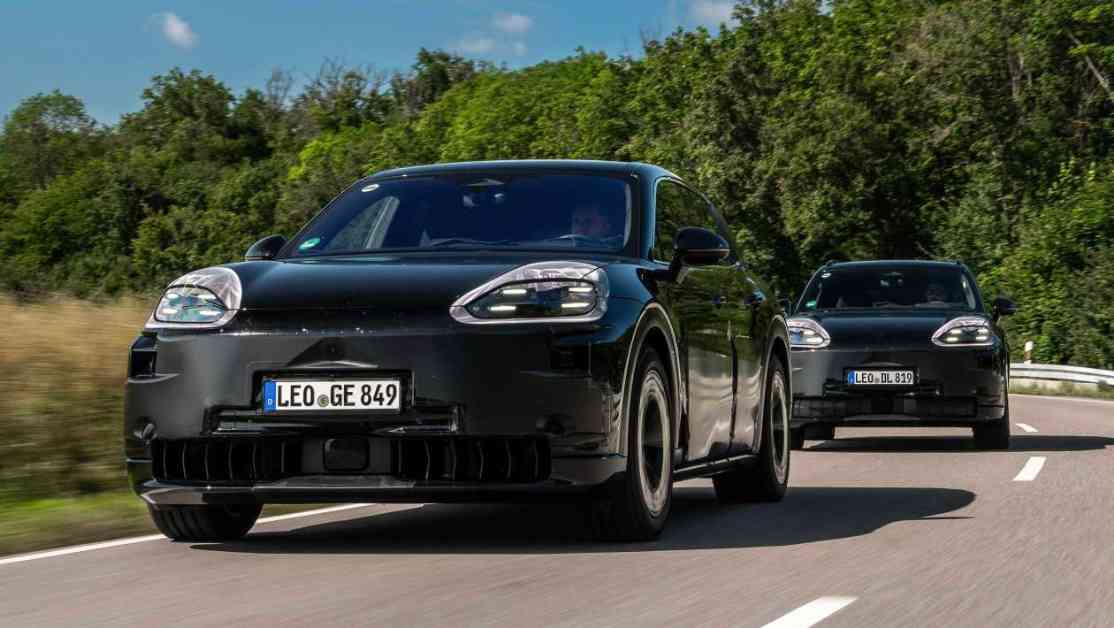Porsche is gearing up for a major shift in its Cayenne lineup, with the introduction of an all-electric model set to join the existing petrol and hybrid options. The move comes as part of Porsche’s broader strategy to embrace electric mobility while still catering to customers who prefer traditional internal combustion engines.
The Future of Porsche Cayenne
The upcoming electric Cayenne will be based on a comprehensive development of the new electric Macan’s PPE platform, which has been developed in collaboration with Audi. This platform is designed to accommodate both single and dual motor powertrains, with the latter capable of producing up to 630bhp and 833lb ft of torque in the Macan EV.
Porsche is focusing on ensuring that the electric Cayenne maintains the performance and driving dynamics that the brand is known for. Higher-spec versions of the Cayenne are expected to come equipped with an electronically controlled locking differential on the rear axle, rear-wheel steering, air springs, and PASM adaptive dampers. These chassis systems are intended to enhance the handling and ride quality of the electric Cayenne.
Technical Specifications
While specific details about the electric Cayenne’s specs have not been released, it is expected that the vehicle will feature a larger battery pack compared to the Macan to compensate for the Cayenne’s larger size and weight. The Macan 4 currently achieves a range of 380 miles from its 95kWh battery pack, and Porsche may aim to match or exceed this range in the electric Cayenne.
Additionally, the electric Cayenne is likely to offer fast charging capabilities, with maximum charging rates potentially meeting or exceeding the 270kW speeds achieved by the Macan. This will be crucial in addressing range anxiety and ensuring that the electric Cayenne is practical for daily use.
Development and Testing
Testing for the fourth-generation Cayenne is already well underway, with prototypes expected to have completed several million test miles in extreme conditions by the time the vehicle is unveiled. This rigorous testing process is essential to ensure that the electric Cayenne meets Porsche’s high standards for performance, reliability, and safety.
By offering a range of powertrain options, including petrol, hybrid, and electric models, Porsche aims to cater to a diverse set of customer preferences and regulatory requirements. The availability of multiple propulsion options will enable Porsche to adapt to evolving market trends and regulations while maintaining its position as a leader in luxury performance vehicles.
In conclusion, the future of the Porsche Cayenne looks promising with the introduction of an all-electric model alongside updated petrol and hybrid versions. This strategic approach reflects Porsche’s commitment to innovation and sustainability, ensuring that the Cayenne lineup remains relevant and competitive in the evolving automotive landscape.










